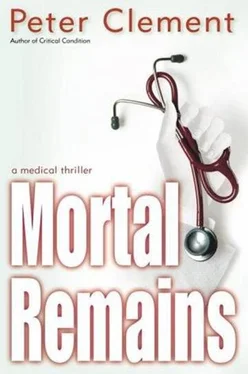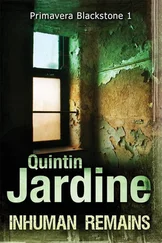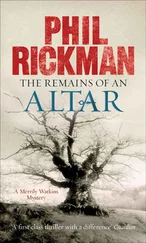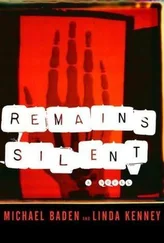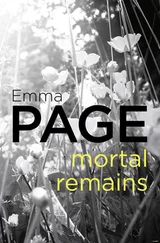Peter Clement - Mortal Remains
Здесь есть возможность читать онлайн «Peter Clement - Mortal Remains» весь текст электронной книги совершенно бесплатно (целиком полную версию без сокращений). В некоторых случаях можно слушать аудио, скачать через торрент в формате fb2 и присутствует краткое содержание. Жанр: Триллер, на английском языке. Описание произведения, (предисловие) а так же отзывы посетителей доступны на портале библиотеки ЛибКат.
- Название:Mortal Remains
- Автор:
- Жанр:
- Год:неизвестен
- ISBN:нет данных
- Рейтинг книги:3 / 5. Голосов: 1
-
Избранное:Добавить в избранное
- Отзывы:
-
Ваша оценка:
- 60
- 1
- 2
- 3
- 4
- 5
Mortal Remains: краткое содержание, описание и аннотация
Предлагаем к чтению аннотацию, описание, краткое содержание или предисловие (зависит от того, что написал сам автор книги «Mortal Remains»). Если вы не нашли необходимую информацию о книге — напишите в комментариях, мы постараемся отыскать её.
Mortal Remains — читать онлайн бесплатно полную книгу (весь текст) целиком
Ниже представлен текст книги, разбитый по страницам. Система сохранения места последней прочитанной страницы, позволяет с удобством читать онлайн бесплатно книгу «Mortal Remains», без необходимости каждый раз заново искать на чём Вы остановились. Поставьте закладку, и сможете в любой момент перейти на страницу, на которой закончили чтение.
Интервал:
Закладка:
Lucy burst out laughing and, laying her hand on his, gave him a wink. “Chipper, you forget what I do for a living.”
He flushed.
The rest roundly laughed.
“Now you quit teasing me, Doc,” Chipper said, breaking into a good-natured smile.
Mark looked around, but Charles didn’t appear to be in the room. Spotting a group of men in a small parlor with sliding doors, he thought his host might be there, and sidled over. As he drew near, he picked up snatches of the conversation.
“… shareholders will bale at the slightest rumor…”
“… exercising my options…”
“… if it gets public…”
But no Charles.
Nevertheless, he strained to hear, thinking he might at least get a tip on which stocks to dump.
“… other CEOs have had worse problems…”
“… the SEC filed charges against Bob last week…”
“… Christ, everyone’s going down like flies these days…”
At that moment Charles appeared out of nowhere, stepped over to the doors, and drew them closed. He turned around and, seemingly only then, spotted Mark. He smiled, and shrugged, almost apologetically. “Businessmen are like doctors,” he said, walking over to take him by the elbow and lead him away. “You can’t even invite them to a party but they clump together and talk shop.”
“Well, I guess that’s true-”
“I wonder if you and I could have a word in private?”
Here we go, Mark thought.
“Of course.”
“Perhaps you’d be kind enough to wait for me in the library. I have to speak with the caterer, but will be along in a minute. You remember the way, don’t you? You used to play there as a child.”
The double wooden doors of polished mahogany were as high as the fifteen-foot ceilings. They opened as soundlessly as he remembered, admitting him to the silent interior. Overhead chandeliers suspended from dark wooden beams cast a dim golden glow over the thousands of book spines that lined the shelves along the walls. Though the room seemed smaller than before, it remained impressive.
Perfect, thought Mark. With the two of them alone, Braden would be more likely to start in with his refined arm-twisting techniques. There’d be no need to keep it polite. That might be more revealing about any family secrets Braden wanted to keep hidden than the nuanced exchanges they’d had thus far in the middle of crowds. Mark might even press him a little – make him defensive about Chaz.
As Mark waited, the soft pungent smell of leather mixed with the caramelized odor of varnish. Closing his eyes, he could have been backin that time when the three people he loved most in the world were as close as the next room, all happily, he’d believed, laughing, eating, and drinking together. Then he felt all the more desolate for the reminder of what he’d lost. “Goddamn it,” he muttered, starting to stroll and read the titles, anything to prevent the past from reinvading his memory. He resented such incursions at the best of times. Somehow, in this house, thoughts of his mother, his father, and Kelly were unseemly fresh and doubly painful.
Yet he found himself heading for the corner he’d liked best – the place where he had curled up on one of the big leather reading chairs with books on travel adventures that were full of wild-animal pictures.
On the way he passed entire sections of medical works, and quickly appreciated the extent of the collection. Interested, he took a closer look.
Initially he saw worn, faded books on obstetrics, some of them almost historical records exhibiting how crude and primitive the profession once was. Others documented more recent history. He pulled down an old leather-bound text dated 1930 and, flipping through it, shuddered at the realities of infant and maternal mortality in the era when his own parents had been born. Ether had been the only anesthetic, sulfa the only antibiotic for infections, and neonatal care for any compromised infants amounted to little more than keeping them warm and hydrated until they died or revived on their own.
The next shelf over contained more up-to-date texts on both childbirth and neonatology, some of them real doorstoppers. Mark remembered his OB rotation under Charles Braden – it had been the man’s last year before retirement – and, whatever he thought of him personally, begrudgingly admitted how excellent he’d been as a teacher. Always on top of current practices, Braden had a wonderful knack for putting those techniques and advances in the context of how things were before.
A few steps farther, he found a whole section of completely contemporary editions, including the latest works on high-risk births, neonatology intensive care, and the management of congenital birth defects. There were scientific publications as well – molecular biology, DNA, the human genome – and tucked alongside them were reprints of articles that Charles Braden coauthored six years ago outlining the potential of screening amniotic fluid for mutated genes to diagnose genetic abnormalities in utero. Handwritten notes in the margins outlined the commercial possibilities of marketing kits to make doing the job easier. Well-thumbed journals with the latest studies in theoretical applications of gene and stem cell therapies completed the collection.
This was not a person who had slipped into retirement and let his profession pass him by. He’d kept up.
On the adjacent shelves, he found the other end of the spectrum – the less noble records of the profession, including yellowed tracts from the thirties and forties that were little more than fascist rants on eugenics. Filled with crude caricatures of Africans pointing out their Negroid features and accompanying texts that were outright racist in attributing inferiority to such physiognomy, these were published in both Boston and New York. Other paperbound manuals hailing from the University of Berlin spewed similar filth about Jews, but had been translated into English by a well-known Manhattan publishing house better known these days for bestsellers by lawyers. Still others were journals that tried to argue the superiority of the white race through exhaustive measurements of cranium sizes on cadavers.
“I see you found my hall of shame,” Charles Braden said from the doorway.
Mark gave a start. He quickly slid one of the works he’d been perusing back into its slot.
“I remember poking through books in here as a kid, Dr. Braden.” He gestured to the room as a whole, hoping to draw attention away from that particular section. “Except I obviously didn’t appreciate then the extent of the medical collection. It’s very impressive.”
“Please, continue to browse. And don’t be embarrassed. Most doctors are drawn to those particular writings. They’re both fascinated and repulsed.” He started toward him, and pointed to the shelves near the end of the wall. “Down there are the big results, the global offspring of these poisonous tracts” – he hooked his thumbs at the odious titles Mark had been looking at- “if they are allowed to bear fruit. Come, take a look. The legacy of hate.”
Not sure what Braden was getting at, or why the man would even collect such despicable material, he hesitated.
“Don’t be shy.” Braden walked to the next set of shelves and ran his hands over the half dozen maroon spines of what resembled an encyclopedia set. “These are bound articles related to war crimes of doctors in Germany and Japan during World War II.” He pulled one out and handed it to Mark. “This author actually does a good job at explaining why genocide occurs.”
As Mark glanced at it, he recognized the name of a Pulitzer Prize-winning journalist whose work he still read regularly in the Herald . Braden had tagged some of the more insightful pieces, often the same ones that Mark remembered clipping and saving when he needed a little extra help sorting out the latest ethnic cleansing on the planet.
Читать дальшеИнтервал:
Закладка:
Похожие книги на «Mortal Remains»
Представляем Вашему вниманию похожие книги на «Mortal Remains» списком для выбора. Мы отобрали схожую по названию и смыслу литературу в надежде предоставить читателям больше вариантов отыскать новые, интересные, ещё непрочитанные произведения.
Обсуждение, отзывы о книге «Mortal Remains» и просто собственные мнения читателей. Оставьте ваши комментарии, напишите, что Вы думаете о произведении, его смысле или главных героях. Укажите что конкретно понравилось, а что нет, и почему Вы так считаете.
